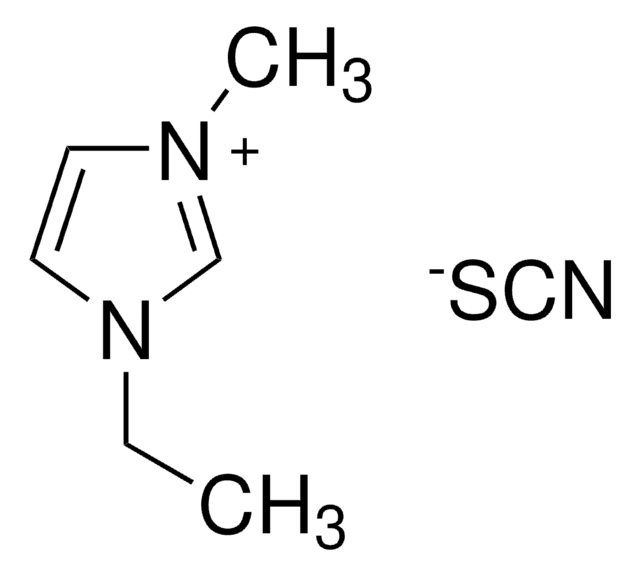241164
Tetraethylene glycol dimethyl ether
≥99%
Synonyme(s) :
2,5,8,11,14-Pentaoxapentadecane, Bis[2-(2-methoxyethoxy)ethyl] ether, Dimethoxytetraethylene glycol, Dimethyltetraglycol, Tetraglyme
About This Item
Produits recommandés
Densité de vapeur
7.7 (vs air)
Pression de vapeur
<0.01 mmHg ( 20 °C)
Pureté
≥99%
Température d'inflammation spontanée
510 °F
Pertinence de la réaction
reagent type: cross-linking reagent
reaction type: click chemistry
Indice de réfraction
n20/D 1.432 (lit.)
Point d'ébullition
275-276 °C (lit.)
Pf
−30 °C (lit.)
Densité
1.009 g/mL at 25 °C (lit.)
Architecture des polymères
shape: linear
functionality: homobifunctional
Chaîne SMILES
COCCOCCOCCOCCOC
InChI
1S/C10H22O5/c1-11-3-5-13-7-9-15-10-8-14-6-4-12-2/h3-10H2,1-2H3
Clé InChI
ZUHZGEOKBKGPSW-UHFFFAOYSA-N
Vous recherchez des produits similaires ? Visite Guide de comparaison des produits
Mention d'avertissement
Danger
Mentions de danger
Conseils de prudence
Classification des risques
Repr. 1B
Risques supp
Code de la classe de stockage
6.1C - Combustible acute toxic Cat.3 / toxic compounds or compounds which causing chronic effects
Classe de danger pour l'eau (WGK)
WGK 1
Point d'éclair (°F)
276.8 °F - closed cup
Point d'éclair (°C)
136 °C - closed cup
Équipement de protection individuelle
Eyeshields, Faceshields, Gloves, type ABEK (EN14387) respirator filter
Faites votre choix parmi les versions les plus récentes :
Déjà en possession de ce produit ?
Retrouvez la documentation relative aux produits que vous avez récemment achetés dans la Bibliothèque de documents.
Notre équipe de scientifiques dispose d'une expérience dans tous les secteurs de la recherche, notamment en sciences de la vie, science des matériaux, synthèse chimique, chromatographie, analyse et dans de nombreux autres domaines..
Contacter notre Service technique









